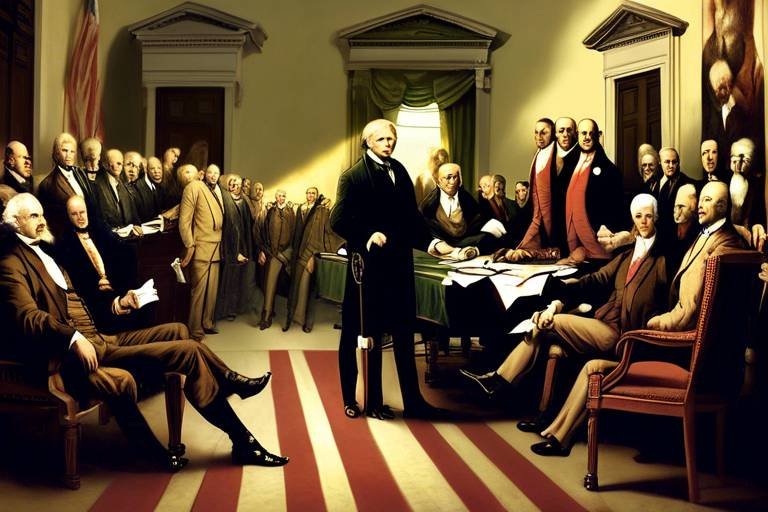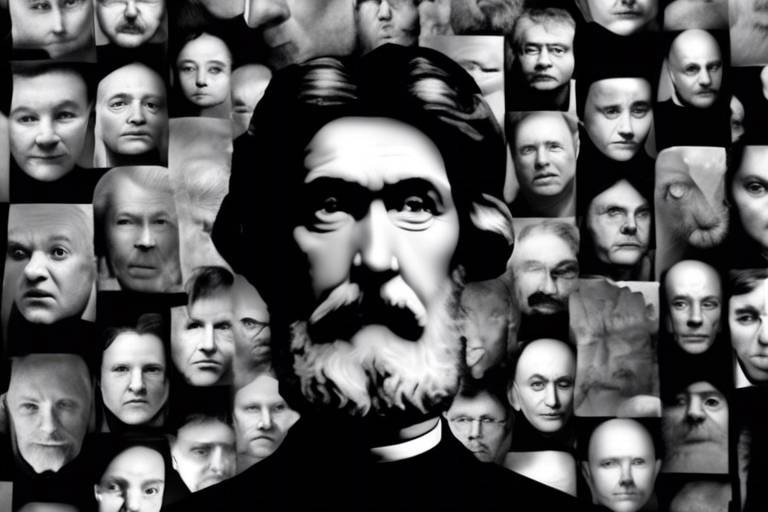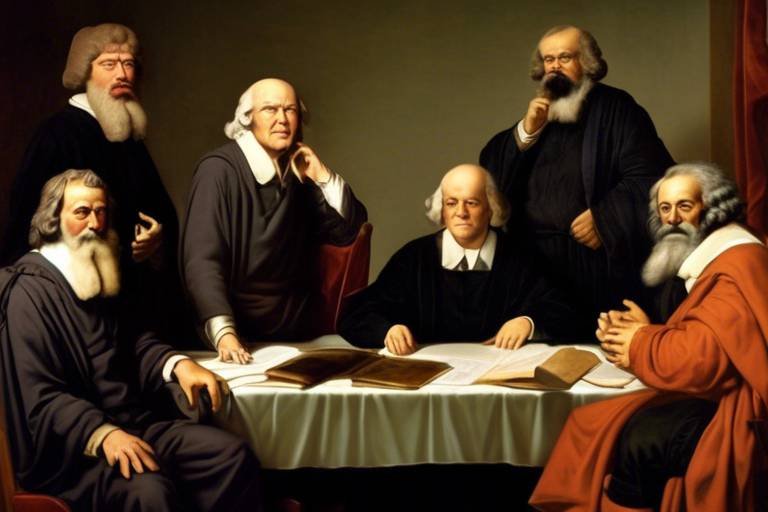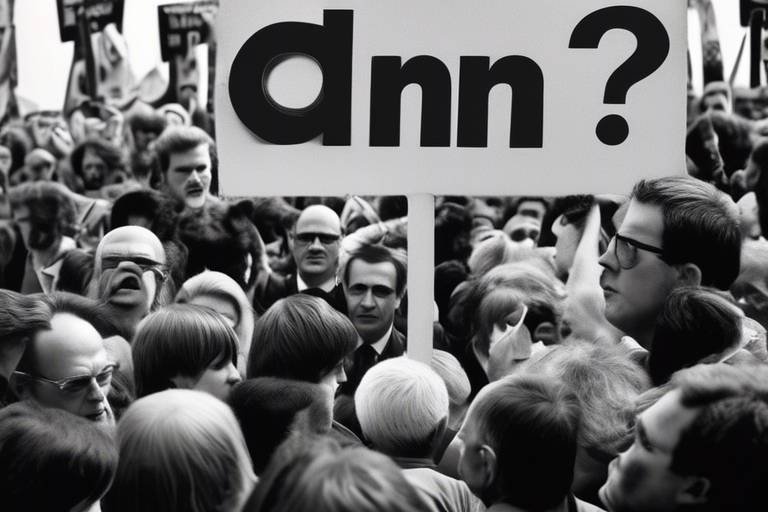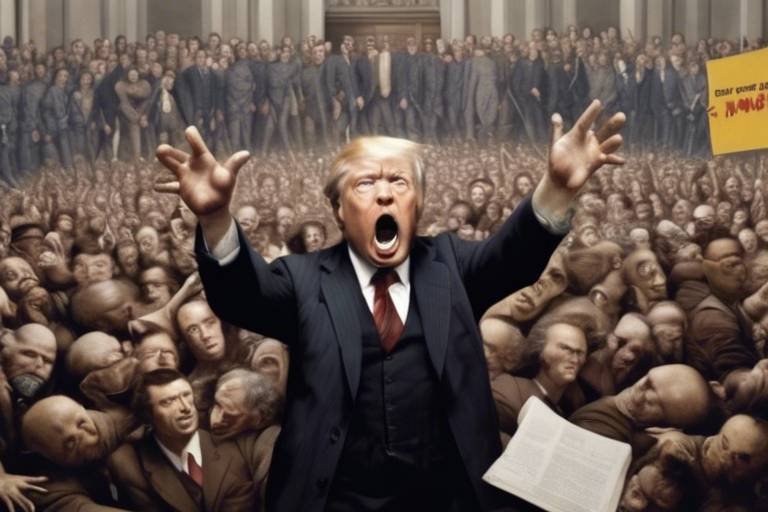Understanding Libertarianism - A Political Philosophy
Libertarianism is more than just a political stance; it's a philosophical commitment to the idea that individuals should have the freedom to make choices about their own lives, as long as those choices do not infringe on the rights of others. Imagine a world where your personal decisions are yours alone, free from government interference. Sounds appealing, right? This philosophy champions the concept of individual liberty and places a heavy emphasis on personal responsibility. At its core, libertarianism advocates for minimal government intervention in both personal and economic affairs, believing that a free society is the best way to promote human flourishing and innovation.
The essence of libertarian thought can be distilled into a few key principles. Firstly, the idea of self-ownership is paramount. Libertarians argue that individuals own their bodies and lives, and thus have the right to make choices about them. Secondly, the principle of voluntary exchange emphasizes that all interactions should be consensual, whether in personal relationships or economic transactions. This leads to the third principle: free markets. Libertarians believe that allowing the market to operate without government interference leads to better outcomes for society as a whole.
Now, you might be wondering, how does this all play out in the real world? Well, libertarians often advocate for policies that reduce the size and scope of government. This can include everything from lowering taxes to abolishing regulatory agencies. They argue that when individuals are free to pursue their own interests, society benefits as a whole. However, this approach is not without its critics, who argue that some level of government intervention is necessary to protect the vulnerable and ensure equality.
As we delve deeper into the historical roots of libertarianism, we find that its principles are not new. They have been shaped and influenced by several key thinkers throughout history. This rich tapestry of ideas has evolved over centuries, leading to the modern movements we see today. So, buckle up as we explore the fascinating journey of libertarian thought, from Enlightenment philosophers to contemporary advocates.
- What is libertarianism? - Libertarianism is a political philosophy that emphasizes individual liberty, personal responsibility, and minimal government intervention.
- Who are some key figures in libertarianism? - Influential figures include John Locke, Friedrich Hayek, and more recent advocates like Ron Paul and Gary Johnson.
- How does libertarianism differ from socialism? - While socialism advocates for collective ownership and government control, libertarianism prioritizes individual property rights and personal freedom.
- Is libertarianism the same as conservatism? - Not quite. While both support limited government, conservatism often includes moral regulation, which libertarians typically oppose.
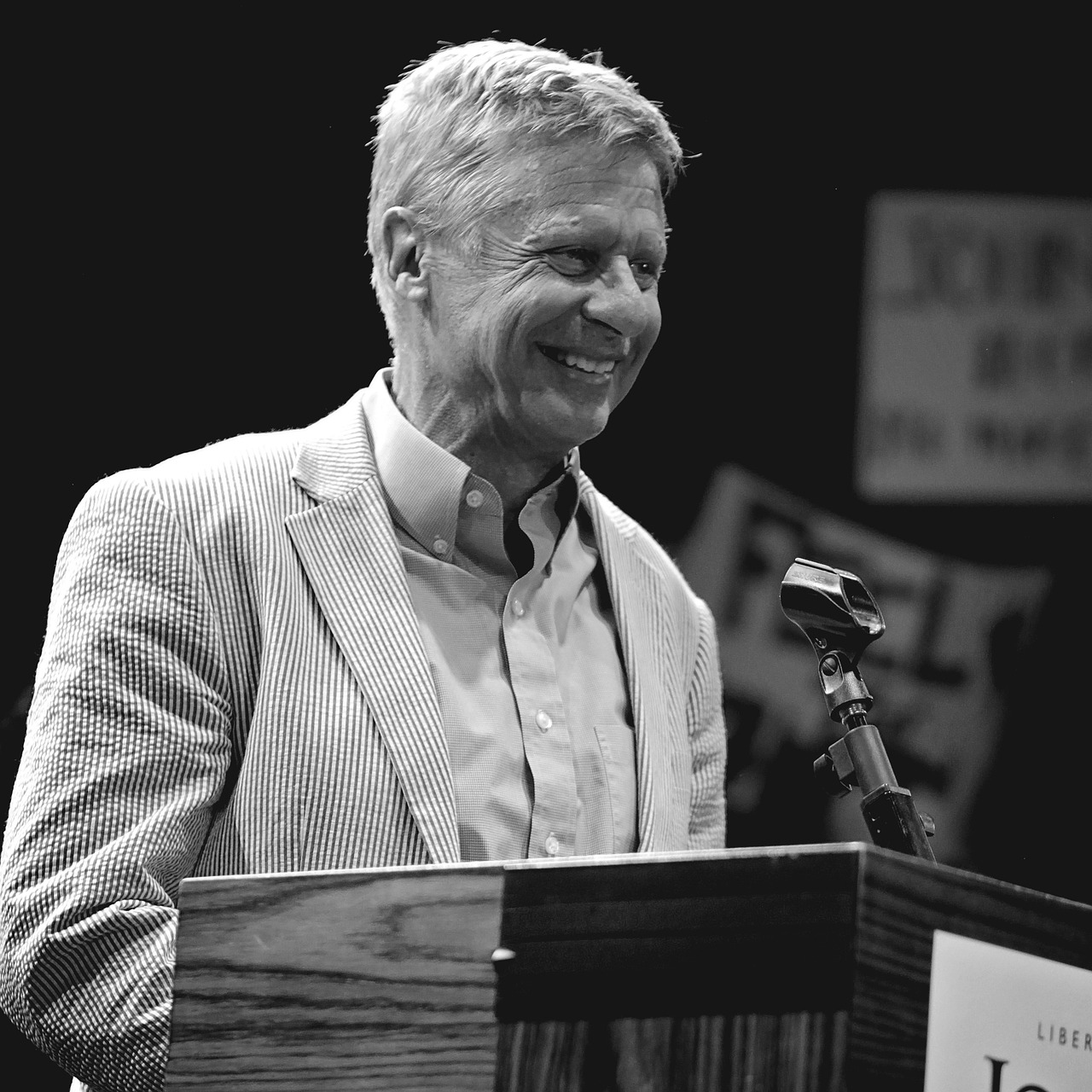
Core Principles of Libertarianism
Libertarianism is not just a political philosophy; it's a way of life that emphasizes the **importance of individual liberty** and **personal responsibility**. At its core, this ideology advocates for minimal government intervention in the lives of individuals, allowing people to make choices that affect their own lives without undue interference. Imagine a world where your decisions are your own, free from the heavy hand of government. Wouldn't that be a refreshing change?
One of the foundational beliefs of libertarianism is the idea of **self-ownership**. This principle asserts that individuals have the right to control their own bodies and lives. In essence, if you own yourself, you should be free to make choices about your life, your health, and your happiness without coercion from others. This notion is closely tied to the belief in **property rights**. Libertarians argue that individuals have the right to acquire, use, and transfer property as they see fit, provided they do not infringe on the rights of others. This leads to a society where innovation and creativity can flourish, as people are incentivized to pursue their passions and interests.
Another key tenet of libertarianism is the belief in **voluntary association**. This means that individuals should be free to form relationships, partnerships, and communities based on mutual consent. Whether it's starting a business, joining a club, or forming a family, the idea is that all interactions should be voluntary. This principle fosters a sense of community built on shared values and respect for individual choices rather than coercive mandates from a central authority.
Libertarians also emphasize the importance of **free markets**. They believe that when individuals are allowed to engage in commerce without government restrictions, it leads to greater prosperity for everyone. The idea is that competition drives innovation, improves quality, and lowers prices. Think of it like a marketplace of ideas—when people are free to express themselves and trade freely, the best ideas rise to the top, benefiting society as a whole.
In summary, the core principles of libertarianism revolve around the ideas of **individual liberty**, **self-ownership**, **property rights**, **voluntary association**, and **free markets**. These concepts not only define the philosophy but also serve as a blueprint for a society where individuals can thrive without the constraints of excessive government control. As we dive deeper into the historical roots and implications of libertarianism, it's essential to keep these principles in mind, as they form the bedrock of this compelling political philosophy.
- What is the main goal of libertarianism? The main goal is to maximize individual freedom while minimizing government intervention.
- Are libertarians against all forms of government? Not necessarily. Libertarians advocate for a limited government that protects individual rights but does not interfere in personal choices.
- How do libertarians view taxation? Many libertarians see taxation as a form of coercion and advocate for minimal or no taxes.
- What distinguishes libertarianism from other political ideologies? Libertarianism uniquely prioritizes individual liberty and free markets over collective ownership or moral regulation.
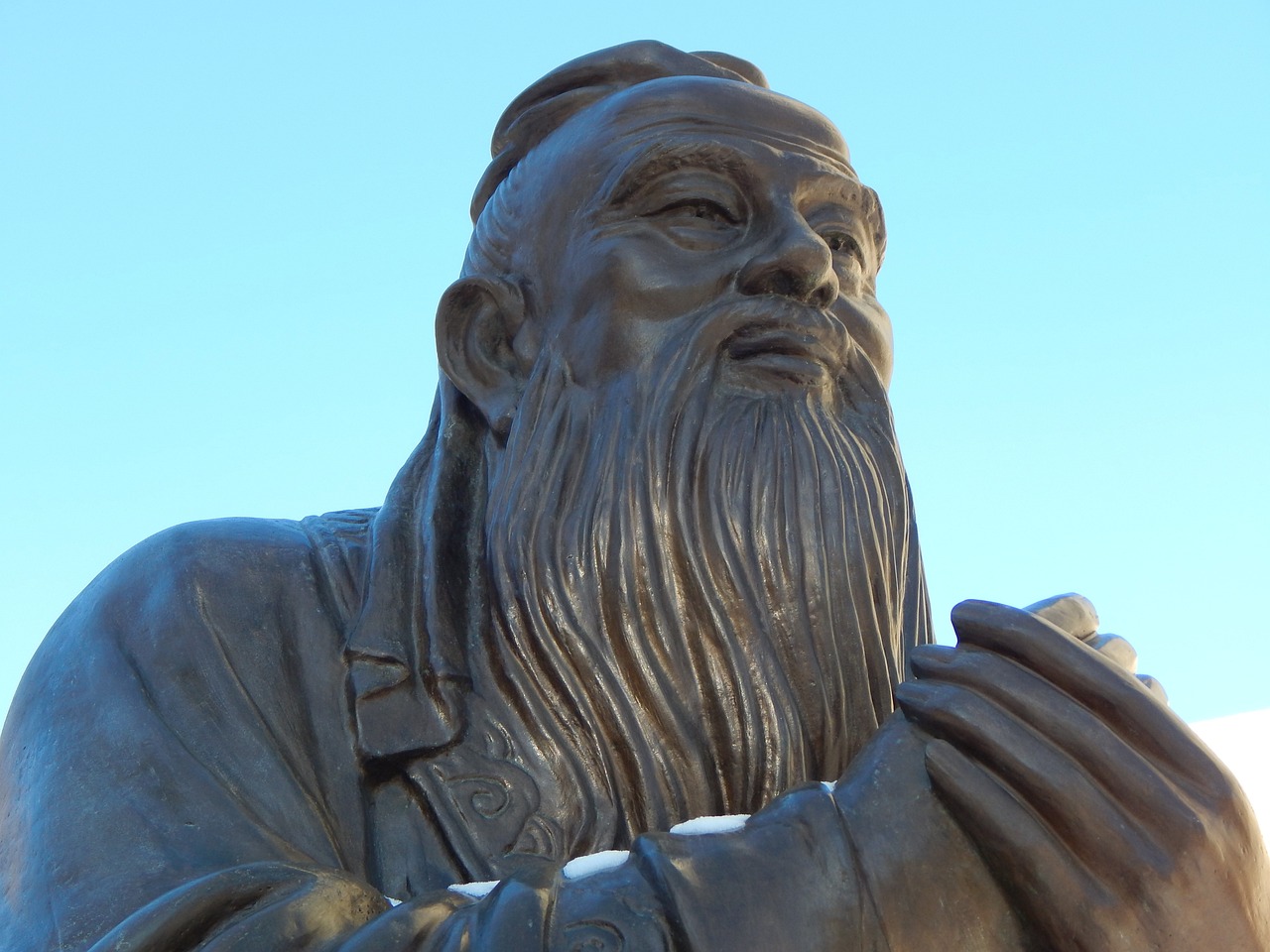
Historical Roots of Libertarianism
Libertarianism is not just a modern political movement; it has deep historical roots that stretch back to the Enlightenment, a period that championed reason, individualism, and skepticism of authority. This era birthed revolutionary ideas about governance and personal freedom that continue to resonate today. Think of it as the seed from which the vast tree of libertarian thought has grown, branching out into various philosophies and movements over the centuries.
One of the first significant influences on libertarianism came from the writings of John Locke in the 17th century. Locke argued that individuals possess inherent rights to life, liberty, and property—concepts that would later be foundational to libertarian ideology. His idea that governments are formed through the consent of the governed directly challenges the notion of absolute authority, suggesting instead that power should be derived from the people. This idea is akin to a contract where the government is merely a servant of the citizens, tasked with protecting their rights rather than infringing upon them.
Following Locke, the 18th century Enlightenment further propelled libertarian ideals through thinkers like Jean-Jacques Rousseau and Adam Smith. Rousseau’s notion of the social contract and the importance of individual autonomy influenced the way people viewed their relationship with the state. Meanwhile, Smith’s advocacy for free markets laid the groundwork for economic theories that would later be embraced by libertarians. The notion that individuals acting in their self-interest could lead to societal benefits is a cornerstone of libertarian economic thought.
As we move into the 19th century, libertarianism began to solidify as a distinct political philosophy. Thinkers such as John Stuart Mill championed individual freedom and the harm principle, which posits that individuals should be free to act however they wish unless their actions harm others. This principle resonates deeply within libertarian circles, reinforcing the idea that personal autonomy is paramount. Mill’s work illustrates how the struggle for individual rights is a continuous journey, often fraught with challenges but essential for a free society.
In the 20th century, the emergence of figures like Friedrich Hayek and Milton Friedman brought a renewed focus on economic freedom and the dangers of government intervention. Hayek’s seminal work, The Road to Serfdom, warns against the gradual encroachment of state power, arguing that such trends lead to tyranny. His insights underscore the libertarian belief that economic freedom is intrinsically linked to personal liberty, creating a compelling narrative that resonates with many in contemporary society.
Today, the historical roots of libertarianism serve as a guiding light for modern advocates who continue to fight for individual rights and minimal government intervention. The evolution of libertarian thought is a testament to the enduring power of these ideas, illustrating that the quest for freedom and autonomy is as relevant now as it was centuries ago. Just as a tree grows and adapts to its environment, so too does libertarianism evolve, shaped by historical context and contemporary challenges.

Influential Thinkers
When we dive into the world of libertarianism, we can't ignore the monumental impact of influential thinkers who have shaped its core philosophies. These intellectual giants laid the groundwork for the principles of individual liberty, free markets, and limited government that we associate with modern libertarian thought. Among them, John Locke and Friedrich Hayek stand out, each contributing unique insights that resonate through the ages.
John Locke, often hailed as the father of liberalism, introduced revolutionary ideas about natural rights and the social contract. His assertion that individuals possess inherent rights to life, liberty, and property laid the philosophical foundation for libertarianism. Locke argued that governments derive their legitimacy from the consent of the governed, a concept that challenges the divine right of kings and authoritarian rule. This idea of consent is crucial; it suggests that a government's primary role is to protect individual rights rather than infringe upon them. Locke's thoughts can be encapsulated in his famous quote: "Where there is no law, there is no freedom." This notion resonates deeply within libertarian circles, highlighting the importance of limited government intervention in personal affairs.
On the other hand, Friedrich Hayek brought a different flavor to the libertarian discourse, particularly through his work in economics. He emphasized the significance of free markets and individual choice, arguing that economic freedom is essential for personal freedom. Hayek's seminal work, The Road to Serfdom, warns against the dangers of central planning and government control, which he believed could lead to tyranny. He famously stated, "The curious task of economics is to demonstrate to men how little they really know about what they imagine they can design." This highlights the unpredictability of economic systems and the importance of allowing individuals to make their own choices.
Both Locke and Hayek illustrate the profound connection between individual freedom and economic liberty, a cornerstone of libertarianism. Their ideas not only shaped the philosophical landscape of their times but continue to influence contemporary debates on governance and personal rights. Understanding their contributions is vital for anyone looking to grasp the essence of libertarian thought.
In summary, the legacies of these thinkers have created a robust framework that champions individual rights and limited government. Their works serve as a guiding light for modern libertarians who seek to navigate the complexities of today's political landscape while remaining true to the principles of liberty and personal responsibility.
- What is libertarianism?
Libertarianism is a political philosophy that emphasizes individual liberty, personal responsibility, and minimal government intervention in both personal and economic matters.
- Who are the key figures in libertarian thought?
Key figures include John Locke, who focused on natural rights, and Friedrich Hayek, who emphasized free markets and individual choice.
- How does libertarianism differ from socialism?
Libertarianism prioritizes individual property rights and minimal government, while socialism advocates for collective ownership and government control over resources.
- What are the implications of libertarianism for modern governance?
Libertarianism offers perspectives that advocate for less government intervention, promoting policies that enhance personal freedoms and economic autonomy.
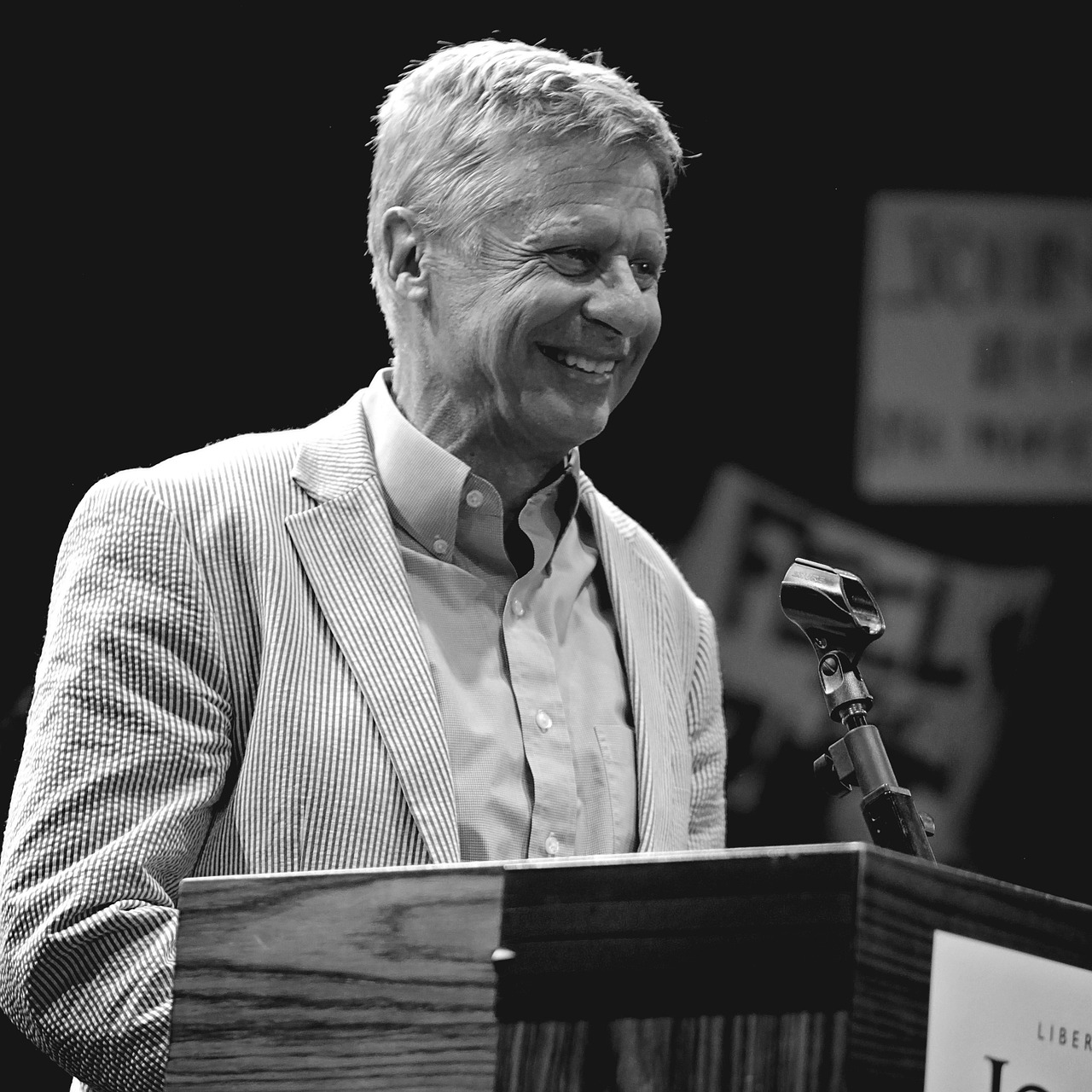
John Locke's Contributions
John Locke, often hailed as the father of liberalism, made significant contributions that laid the groundwork for modern libertarian thought. His ideas on natural rights and the social contract have had a lasting impact on political philosophy. Locke argued that all individuals possess inherent rights to life, liberty, and property—principles that resonate deeply within the libertarian framework. Imagine living in a world where your rights are not just protected but celebrated; this is the essence of Locke's vision.
Locke's belief in the social contract posits that governments derive their legitimacy from the consent of the governed. This means that individuals have the right to overthrow a government that fails to protect their rights, a revolutionary idea that empowers citizens. In Locke's view, the primary role of government is to safeguard individual freedoms rather than infringe upon them. This perspective is crucial for understanding how libertarianism champions minimal government intervention.
Furthermore, Locke emphasized the importance of property rights, arguing that ownership is a natural extension of individual liberty. He famously stated, "The labor of his body and the work of his hands, we may say, are properly his." This notion is foundational for libertarians, who see property rights as essential to personal freedom and economic prosperity. Without the assurance that one can own and control their property, the very fabric of individual liberty begins to unravel.
Locke's influence extends beyond theoretical frameworks; his ideas have inspired countless political movements and revolutions. For instance, the American Revolution was significantly shaped by Locke's philosophy, as the Founding Fathers drew heavily from his writings. This connection illustrates how Locke's contributions are not just historical footnotes but living ideas that continue to inspire debates about governance and individual rights today.
In summary, John Locke's contributions to political philosophy are pivotal for understanding libertarianism. His ideas about natural rights, the social contract, and property rights form the bedrock of a political ideology that values individual liberty above all else. As we navigate the complexities of modern governance, Locke's insights remain as relevant as ever, reminding us that the quest for freedom is an enduring journey.
- What are John Locke's main ideas? Locke's main ideas revolve around natural rights, the social contract, and the importance of property rights.
- How did Locke influence modern political thought? Locke's theories laid the foundation for liberal democracy and significantly influenced the American and French revolutions.
- Why are property rights important in libertarianism? Property rights are essential in libertarian thought as they protect individual freedoms and promote economic prosperity.
- What is the social contract theory? The social contract theory posits that governments derive their authority from the consent of the governed, emphasizing the role of individual rights.
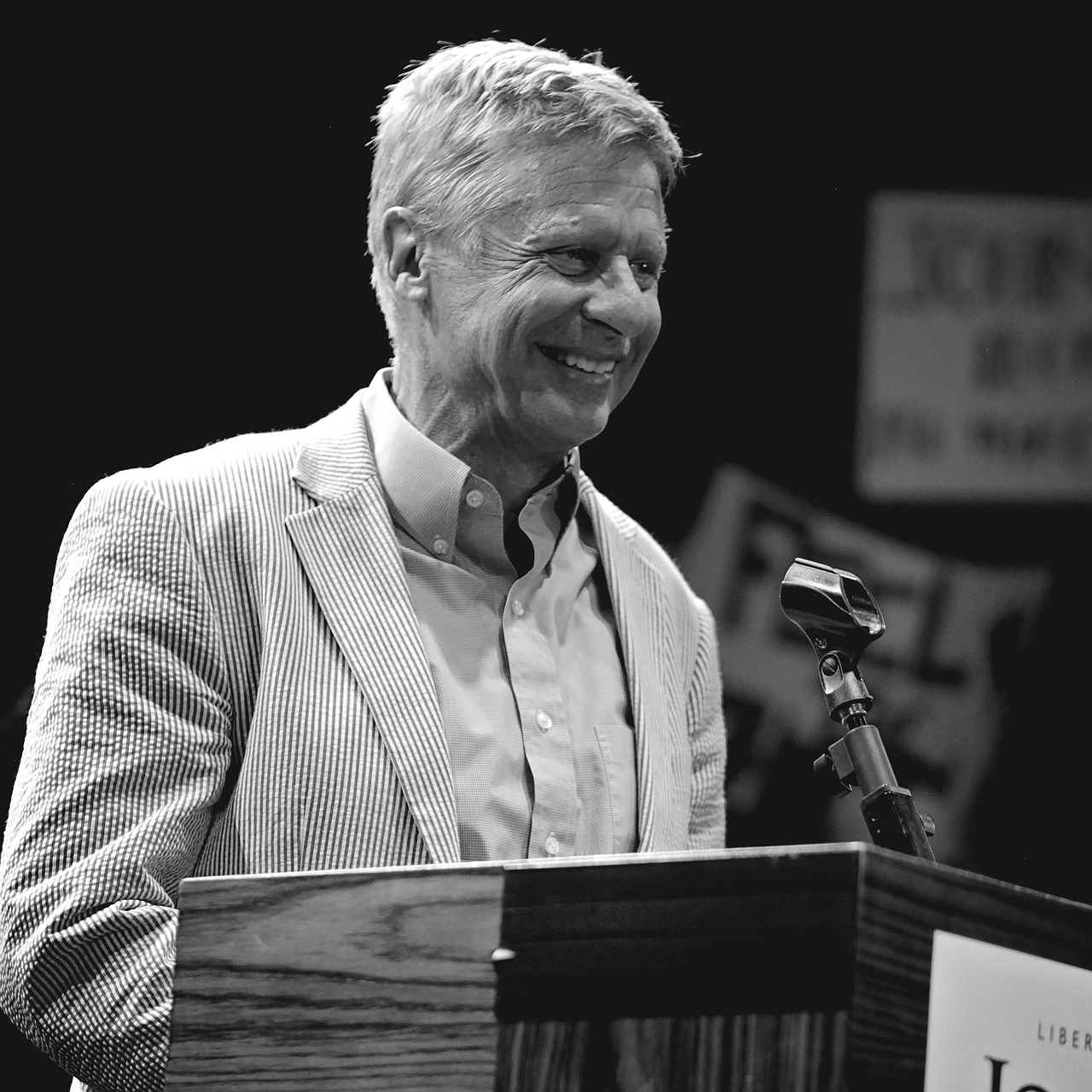
Friedrich Hayek's Economic Insights
Friedrich Hayek, a towering figure in the realm of economics, is best known for his staunch defense of free-market capitalism and his critical views on government intervention. His work, particularly in the mid-20th century, laid the groundwork for understanding the intricate relationship between individual choice and economic systems. Hayek believed that the economy functions best when individuals are free to make their own decisions, a principle that resonates deeply with libertarian ideals. He argued that when governments attempt to control or regulate markets, they inadvertently disrupt the natural order of economic activity, leading to inefficiencies and unintended consequences.
One of Hayek's most influential concepts is the idea of the "spontaneous order." He posited that complex systems, like economies, thrive when individuals act based on their own knowledge and preferences, rather than through centralized planning. This notion is akin to how a flock of birds moves in perfect harmony without a leader; each bird responds to its surroundings and the actions of its neighbors, creating a cohesive whole. In Hayek's view, the market operates similarly, where prices and supply are determined by the collective actions of individuals rather than by a central authority.
Hayek's seminal work, "The Road to Serfdom," serves as a cautionary tale about the dangers of excessive government control. In this book, he argues that any attempt to impose economic planning leads to a gradual erosion of personal freedoms. This is particularly relevant in today's political climate, where debates about the role of government in the economy are more heated than ever. Hayek warns that economic control can pave the way for totalitarianism, as it concentrates power in the hands of a few, undermining the very liberties that democratic societies are built upon.
Furthermore, Hayek emphasized the importance of knowledge in economic decision-making. He argued that no single entity can possess all the information necessary to make effective economic decisions for society. Instead, knowledge is dispersed among individuals. This concept underlines the significance of allowing markets to function freely, as they serve as a mechanism for individuals to communicate their preferences and needs through their purchasing choices. In this way, Hayek championed the idea that freedom and responsibility go hand in hand, as individuals are empowered to make choices that shape their own economic destinies.
In summary, Friedrich Hayek's economic insights offer a robust framework for understanding the principles of libertarianism. His advocacy for free markets, spontaneous order, and the dangers of government intervention continue to resonate in modern economic discourse. As we navigate contemporary economic challenges, Hayek's work serves as a reminder of the profound impact that individual choice and freedom have on the prosperity of society. By embracing these principles, we can foster an environment where innovation and creativity flourish, ultimately benefiting everyone.
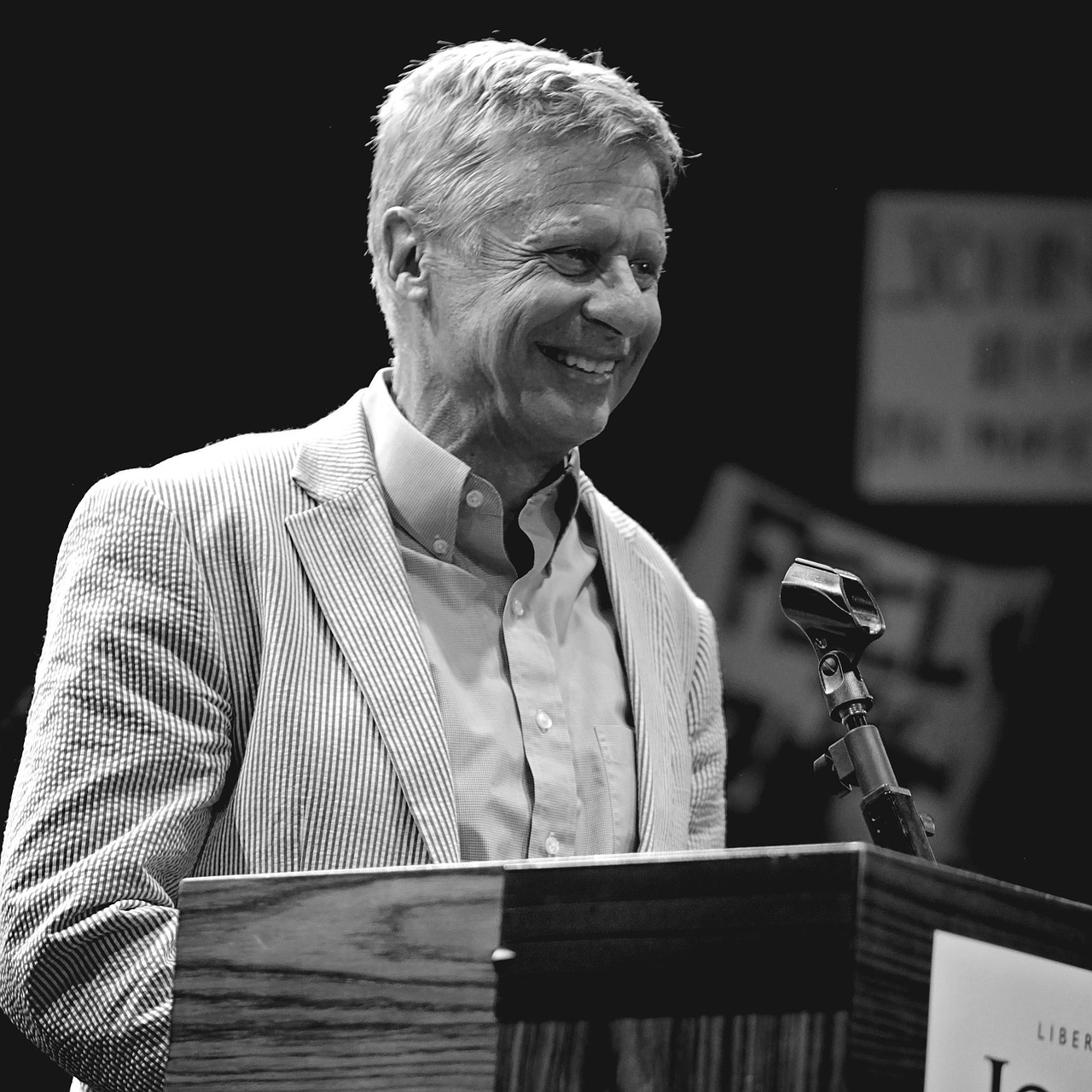
Modern Libertarian Movements
In recent years, libertarianism has gained traction as a viable political philosophy, resonating with many who seek greater individual freedom and less government interference in their lives. The rise of modern libertarian movements can be attributed to a combination of factors, including increasing disillusionment with traditional political parties and a growing awareness of issues such as personal privacy, government surveillance, and economic freedom. These movements have emerged as a response to the perceived overreach of government in various aspects of life, advocating for a return to fundamental principles of liberty and personal responsibility.
One of the most prominent organizations in the modern libertarian landscape is the Libertarian Party, founded in the United States in 1971. This party has consistently championed the cause of limited government, civil liberties, and free-market economics. Over the years, the Libertarian Party has participated in numerous elections, striving to present a viable alternative to the two-party system. Despite facing significant challenges, it has managed to attract a dedicated base of supporters who are passionate about advocating for libertarian ideals.
In addition to the Libertarian Party, various grassroots organizations and think tanks have emerged, promoting libertarian principles through educational initiatives, policy analysis, and activism. Groups such as the Cato Institute and the Reason Foundation play crucial roles in shaping public discourse around issues like taxation, regulation, and personal freedoms. They provide research and resources that empower individuals to understand and advocate for libertarian policies.
Furthermore, the advent of the internet and social media has provided a platform for libertarian voices to flourish. Online communities, podcasts, and blogs have sprung up, allowing libertarians to connect, share ideas, and mobilize support for various causes. This digital revolution has enabled the movement to reach a wider audience, making libertarian ideas more accessible to those who may have previously been unaware of them.
Modern libertarian movements are not without their challenges. The struggle to differentiate between the core tenets of libertarianism and the often-misunderstood or misrepresented aspects of the philosophy can create confusion. Moreover, the movement faces internal debates regarding the direction it should take, especially in response to contemporary issues such as climate change, healthcare, and immigration. These discussions are vital for the evolution of libertarian thought, as they allow for a more nuanced understanding of how libertarian principles can be applied in a complex world.
As we look to the future, it's clear that modern libertarian movements will continue to play a significant role in shaping political discourse. Whether through electoral participation, grassroots activism, or intellectual contributions, libertarians are poised to influence the direction of policy-making and governance. The challenge remains to effectively communicate the value of liberty and individual rights in a landscape that often favors collective solutions over personal freedoms.
- What is libertarianism? Libertarianism is a political philosophy that emphasizes individual liberty, personal responsibility, and minimal government intervention.
- What are the main beliefs of libertarianism? Libertarians believe in personal freedom, free markets, and the protection of individual rights, advocating for limited government involvement in personal and economic affairs.
- Who are some key figures in libertarian thought? Influential thinkers include John Locke, who discussed natural rights, and Friedrich Hayek, who emphasized free markets.
- How does libertarianism differ from socialism? Libertarianism prioritizes individual property rights, while socialism advocates for collective ownership and government control of resources.
- What modern movements are associated with libertarianism? The Libertarian Party, Cato Institute, and various grassroots organizations are key players in promoting libertarian ideals today.

Libertarianism vs. Other Political Philosophies
When we dive into the world of political philosophies, it’s like stepping into a vibrant marketplace filled with diverse ideas and beliefs. Among these, libertarianism stands out, advocating for individual freedom and limited government intervention. But how does it stack up against other philosophies like socialism and conservatism? Let’s break it down.
First off, let’s talk about socialism. At its core, socialism champions collective ownership and aims to distribute resources more evenly among the populace. This philosophy believes that the government should play a significant role in managing the economy and providing for the welfare of its citizens. In stark contrast, libertarianism places a premium on individual property rights and personal responsibility. Libertarians argue that when individuals are free to pursue their own interests without government interference, society as a whole benefits. It’s a classic case of “less is more.”
Imagine a garden: socialism is like planting a variety of flowers in a way that they all share the same amount of sunlight and water, while libertarianism is akin to letting each flower grow as it wishes, reaching for the light and nutrients that suit it best. The former aims for equality in growth, whereas the latter celebrates the unique potential of each plant. This fundamental ideological clash can lead to heated debates. Here’s a quick comparison:
| Aspect | Libertarianism | Socialism |
|---|---|---|
| Ownership | Individual property rights | Collective ownership |
| Government Role | Minimal intervention | Active management |
| Economic System | Free market | Planned economy |
Now, let’s pivot to conservatism. While both libertarianism and conservatism value limited government, they often diverge on social issues and moral regulations. Conservatives tend to support a stronger government role in enforcing traditional values and social norms. For instance, where libertarians might advocate for personal choices regarding lifestyle and morality, conservatives may argue for regulations that align with their moral beliefs. This nuanced relationship can sometimes create strange bedfellows in political coalitions, as both groups often find common ground in their desire for a smaller government.
To visualize this contrast, think of a two-lane road. Libertarians drive on the left lane, steering clear of government speed limits, while conservatives may prefer the right lane, where the government sets certain boundaries to ensure everyone drives within the lines. Both lanes aim for the same destination—a more prosperous society—but their routes differ significantly.
In essence, the clash between libertarianism, socialism, and conservatism illustrates a broader struggle over the role of government in our lives. Each philosophy offers unique insights and solutions, but they also raise critical questions about freedom, equality, and responsibility. So, which lane do you want to drive down? The choice is ultimately yours, but understanding these differences is the first step in navigating the complex landscape of political thought.
- What is the main goal of libertarianism? Libertarianism aims to maximize individual freedom and minimize government intervention in both personal and economic matters.
- How does libertarianism view property rights? Libertarians believe in strong individual property rights, arguing that ownership is essential for personal liberty and economic prosperity.
- Can libertarianism coexist with other political philosophies? While it can, the fundamental differences often lead to significant ideological clashes, especially with socialism and conservatism.
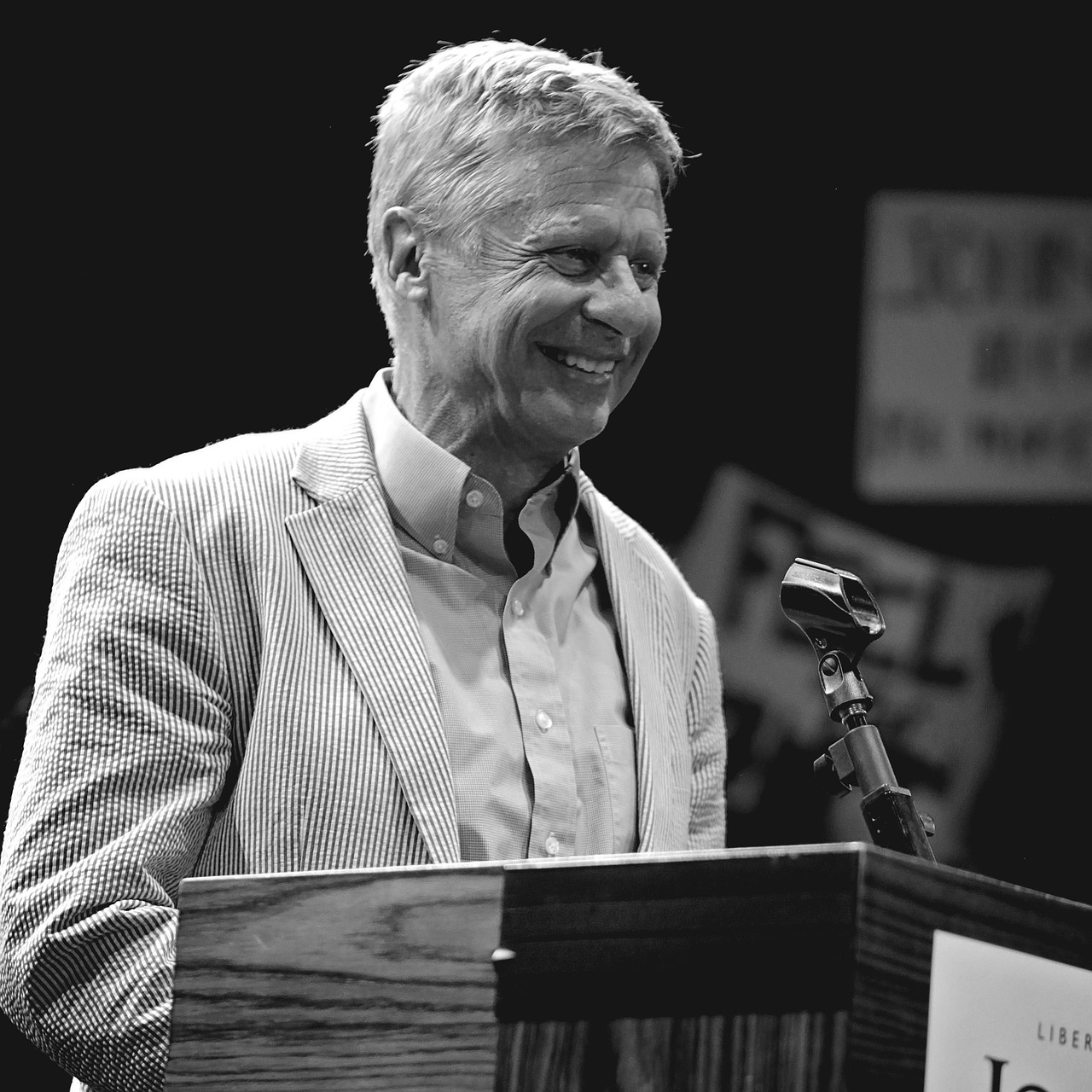
Libertarianism and Socialism
When we dive into the world of political philosophies, Libertarianism and Socialism often stand as two opposing forces, each presenting a unique vision of society and governance. At the heart of this ideological clash lies a fundamental disagreement about the role of individual rights and property ownership. While libertarianism champions the idea of personal freedom and minimal government interference, socialism advocates for collective ownership and the redistribution of resources to achieve equality.
To better understand this dichotomy, let’s break down some key differences:
- Ownership of Property: Libertarians believe in the sanctity of private property as a natural right, viewing it as essential for individual freedom and economic prosperity. In contrast, socialists argue that property should be owned collectively or controlled by the state to ensure that wealth is distributed more equitably among all members of society.
- Government Role: Libertarians advocate for a minimal state, arguing that government intervention often leads to the infringement of personal liberties. Socialists, on the other hand, see a robust government as necessary to implement policies that promote social welfare and reduce inequality.
- Economic Systems: Libertarians support free markets where individuals can freely engage in commerce, believing that competition drives innovation and prosperity. Socialists, however, argue that unregulated markets can lead to exploitation and inequality, thus favoring regulated or planned economies.
This ideological rift raises important questions about how society should function. For instance, can true freedom exist without economic equality? Libertarians would argue that freedom is paramount, and that individuals should have the right to succeed or fail based on their own efforts. Conversely, socialists might contend that without addressing systemic inequalities, true freedom is unattainable for many.
Moreover, the debate between these two philosophies is not just theoretical; it has real-world implications. Countries that lean towards socialism often implement policies aimed at wealth redistribution, such as universal healthcare and free education, which they argue are essential for a just society. Libertarians, however, criticize these policies as overreach, claiming that they stifle individual initiative and economic growth.
As we navigate through these complex ideas, it's crucial to recognize that neither ideology is monolithic. Within both libertarianism and socialism, there are various shades and interpretations that can lead to different conclusions about the best path forward for society. This nuanced understanding allows for a richer dialogue about the values we prioritize and the systems we choose to govern our lives.
- What is the main difference between libertarianism and socialism? The primary difference lies in their views on property and government intervention. Libertarians advocate for individual property rights and minimal government, while socialists support collective ownership and a more active government role in promoting equality.
- Can libertarianism and socialism coexist? While fundamentally different, some individuals may find value in aspects of both philosophies, advocating for a mixed approach that incorporates elements of freedom and social welfare.
- How do libertarians view social welfare programs? Libertarians generally oppose social welfare programs, believing they create dependency and infringe on individual liberties, whereas socialists support such programs as essential for ensuring that all individuals have access to basic needs.

Libertarianism and Conservatism
When we dive into the world of political ideologies, libertarianism and conservatism often emerge as two sides of the same coin, yet they hold distinct values that set them apart. While both philosophies advocate for a limited government, their approaches to individual rights and moral regulation create a fascinating, albeit complex, relationship. Think of it as two neighbors living next door to each other: they share a fence, but their gardens are cultivated in very different ways.
At the core of libertarianism is the belief in personal freedom and the idea that individuals should have the autonomy to make their own choices without government interference. Libertarians argue that the government’s role should be minimal, primarily focused on protecting individual rights and maintaining order. This philosophy champions the idea that people are best equipped to govern their own lives, emphasizing personal responsibility and voluntary cooperation.
On the other hand, conservatism, while also advocating for a limited government, tends to embrace a more structured approach to societal norms and values. Conservatives often support the idea of moral regulation, believing that the government should play a role in upholding traditional values and social order. This can lead to a tension between the two ideologies, as libertarians may view such regulations as an infringement on personal freedoms.
To illustrate this contrast, let’s consider a couple of key areas where these philosophies diverge:
- Economic Policies: Libertarians advocate for free markets with minimal government intervention, while conservatives may support certain regulations to promote stability and protect traditional industries.
- Social Issues: Libertarians typically adopt a more permissive stance on social issues, arguing for individual choice in matters like marriage and drug use, whereas conservatives often push for laws that reflect their moral beliefs.
This nuanced relationship often manifests in political arenas, where libertarians and conservatives may find common ground on issues like taxation and government spending, yet clash on social policies. For instance, both groups might oppose high taxes, but while libertarians would argue for complete elimination of certain taxes, conservatives might support them if they fund programs that align with their moral framework.
In summary, the relationship between libertarianism and conservatism is marked by both cooperation and contention. They share a foundational belief in limited government, yet diverge sharply on the role of that government in regulating personal choices and upholding moral standards. Understanding this dynamic is crucial for anyone looking to navigate the complex landscape of modern political thought.
- What is the main difference between libertarianism and conservatism? Libertarianism prioritizes individual freedom and minimal government intervention, while conservatism supports limited government but often advocates for moral regulations.
- Can libertarians and conservatives work together? Yes, they can find common ground on issues like taxation and government spending, but may disagree on social policies.
- Are libertarians socially liberal? Generally, yes. Libertarians advocate for personal choice in social issues, while conservatives may push for laws reflecting traditional values.

Implications for Modern Governance
Libertarianism presents a fascinating lens through which to examine modern governance, advocating for a system where individual freedoms take precedence over government control. Imagine a world where citizens are empowered to make their own choices without the heavy hand of bureaucracy dictating their lives. This philosophy promotes the idea that less government interference leads to a more vibrant and innovative society. By prioritizing personal responsibility and voluntary interactions, libertarianism challenges the conventional wisdom that larger government equals better governance.
One of the most significant implications of libertarian thought is the push for decentralization. In a libertarian framework, power is distributed among various levels of government rather than being concentrated in a central authority. This decentralization allows for more tailored policies that reflect the unique needs of local communities. For example, if a small town wants to adopt a different approach to public safety, it should have the freedom to do so without waiting for federal approval. This flexibility not only fosters innovation but also encourages civic engagement, as citizens feel more connected to the decision-making processes that affect their lives.
Moreover, libertarianism emphasizes the importance of economic freedom. By advocating for minimal government intervention in markets, it argues that individuals should have the right to engage in voluntary exchanges without excessive regulation. This perspective can lead to more competitive markets, which often results in lower prices and improved services for consumers. Think of it this way: when businesses are allowed to operate freely, they are incentivized to innovate and adapt to consumer needs, much like a river flowing around obstacles to find the best path forward.
However, the implications of libertarianism extend beyond economic policies. It also raises critical questions about social issues and individual rights. For instance, libertarians often argue for the legalization of drugs, positing that individuals should have the autonomy to make choices about their own bodies without government interference. This perspective challenges existing laws and prompts discussions about the effectiveness of the war on drugs, as well as the social costs associated with criminalizing personal choices.
Another area where libertarianism influences modern governance is in the debate over surveillance and privacy. In an age where technology enables unprecedented levels of government monitoring, libertarians advocate for strong protections of individual privacy. They argue that a government that can surveil its citizens without consent is a threat to liberty itself. This perspective has become increasingly relevant as discussions around data privacy and civil liberties gain traction in the public sphere.
To further illustrate the potential benefits and challenges of libertarian principles in governance, consider the following table:
| Aspect | Libertarian Approach | Traditional Approach |
|---|---|---|
| Government Size | Minimal intervention | Active regulation |
| Economic Policy | Free markets | Mixed economy |
| Individual Rights | Maximum personal freedom | Collective responsibility |
| Social Issues | Personal choice | Regulation for social good |
In conclusion, the implications of libertarianism for modern governance are profound and multifaceted. By advocating for individual liberty, economic freedom, and minimal government intervention, libertarian principles challenge us to rethink the role of government in our lives. They invite us to consider whether a more decentralized, less regulated society could lead to greater innovation and personal fulfillment. As we navigate the complexities of contemporary governance, these ideas will undoubtedly continue to spark debate and inspire action among those who value freedom and personal responsibility.
- What is the main goal of libertarianism? The primary goal of libertarianism is to maximize individual liberty and minimize government intervention in people's lives.
- How does libertarianism differ from socialism? Libertarianism prioritizes individual property rights and personal choice, while socialism advocates for collective ownership and control of resources.
- Can libertarian principles be applied in modern governance? Yes, many libertarian principles can be integrated into modern governance, such as decentralization, economic freedom, and strong privacy protections.
Frequently Asked Questions
- What is libertarianism?
Libertarianism is a political philosophy that emphasizes individual liberty, personal responsibility, and minimal government intervention in people's lives. It advocates for the protection of personal freedoms and property rights, believing that individuals should have the autonomy to make their own choices without excessive interference from the state.
- What are the core principles of libertarianism?
The core principles of libertarianism include:
- Individual Liberty: The belief that individuals should have the freedom to act according to their own will, as long as they do not infringe on the rights of others.
- Personal Responsibility: The idea that individuals are responsible for their own actions and the consequences that follow.
- Minimal Government: The view that government should exist primarily to protect individual rights and should not interfere in personal or economic matters.
- Who are some influential thinkers in libertarianism?
Key figures in the development of libertarian thought include:
- John Locke: His theories on natural rights and the social contract laid the groundwork for modern libertarianism.
- Friedrich Hayek: He emphasized the importance of free markets and individual choice, significantly influencing libertarian economic theory.
- How does libertarianism differ from socialism?
Libertarianism and socialism represent fundamentally different views on property and government intervention. While socialism advocates for collective ownership and government control over resources, libertarianism champions individual property rights and minimal state involvement in economic affairs.
- Can libertarianism coexist with conservatism?
Yes, while both libertarianism and conservatism value limited government, they diverge on certain issues. Libertarians typically oppose moral regulation, advocating for personal choice in all aspects of life, whereas conservatives may support government intervention to uphold traditional values.
- What are the implications of libertarianism for modern governance?
Libertarianism offers unique perspectives on policy-making, emphasizing the need for policies that protect individual rights and promote personal freedom. Its principles can influence contemporary political debates, encouraging a reduction in government size and a focus on personal accountability.

